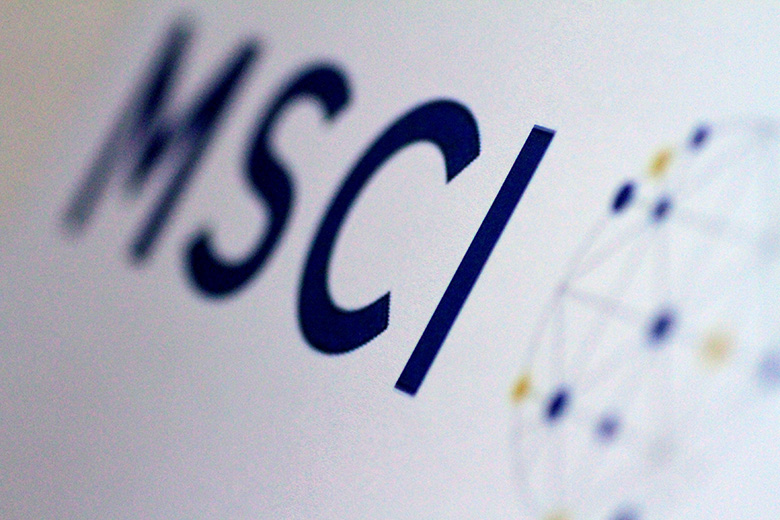“Emerging markets may never be the same.” Say what you like about MSCI, but the index provider clearly believes in its own importance.
Those words form part of MSCI’s announcement on Friday that it will increase the weight of Chinese A-shares – those listed in Shanghai and Shenzhen rather than internationally in Hong Kong and elsewhere – from 5% to 20%.
It’s a bombastic claim, but is it correct?
Clearly, it represents another step in a hugely important process, the opening of China to international investment.
China’s equity market accounts for nearly 30% of all emerging markets (EM) equity, according to MSCI.
|
Chin Ping Chia, |
A quadrupling of the weighting of the domestic market in the MSCI indices is likely to be followed by a rebalancing of both passive and actively managed money; Chin Ping Chia, MSCI’s head of research for Asia-Pacific, says about $80 billion of investment will move as a consequence.
That’s significant, and symbolic, but it’s not quite defining. Even after the move – which will take place in three stages – Chinese A-shares will make up 3.3% of the MSCI EM index.
China through internationally listed shares currently makes up 30.5% of the index. Four individual companies – China’s Tencent and Alibaba, Korea’s Samsung Electronics and Taiwan Semiconductor – each make up a bigger proportion of the index on their own than A-shares will.
Full inclusion would be a much bigger deal, since it would mean A-shares accounting for 16.2% of the EM index, and China overall more than 40%, but that is a distance away.
A future weight increase beyond 20% “would require Chinese authorities to address a number of remaining market accessibility questions,” MSCI said on Thursday, including restrictions on access to hedging and derivatives instruments, and changing the short settlement cycle of China A-shares.
Specific measures
While recognizing the progress Chinese authorities have made in the accessibility of A-shares, notably through the Stock Connect mechanism, MSCI called for some specific measures, such as permitting the listing of index futures and other derivatives on onshore and offshore exchanges to allow international investors to make use of risk-management tools.
There are also issues around trading holidays and omnibus account structures.
Indeed, the lack of obvious progress in market accessibility since MSCI last rejected an increase in weighting prompts some to wonder why it has been announced now: the Wall Street Journal went so far as to say that MSCI “came under heavy pressure from the Chinese government, which tried to curtail the company’s business in the country”.
|
Henry Fernandez, |
MSCI CEO Henry Fernandez responded that the claim was “totally false. It’s as simple as that.”
Banks were welcoming of the change and expected to gain business from it.
“We saw a boost in client interest since the inclusion of A-shares in the MSCI last year,” says Thomas Fang, head of China equities at UBS.
The increase, he says, “will provide an even larger impact and a significant boost to capital inflows from international investors which will, in effect, further institutionalize the local stock market”.
A useful development, then, but not quite enough to argue EMs will never be the same again.
NOTE: If you want to trade at forex professionally – trade with the help of our robot forex developed by our programmers.
Signal2forex review


 Signal2forex.com - Best Forex robots and signals
Signal2forex.com - Best Forex robots and signals




